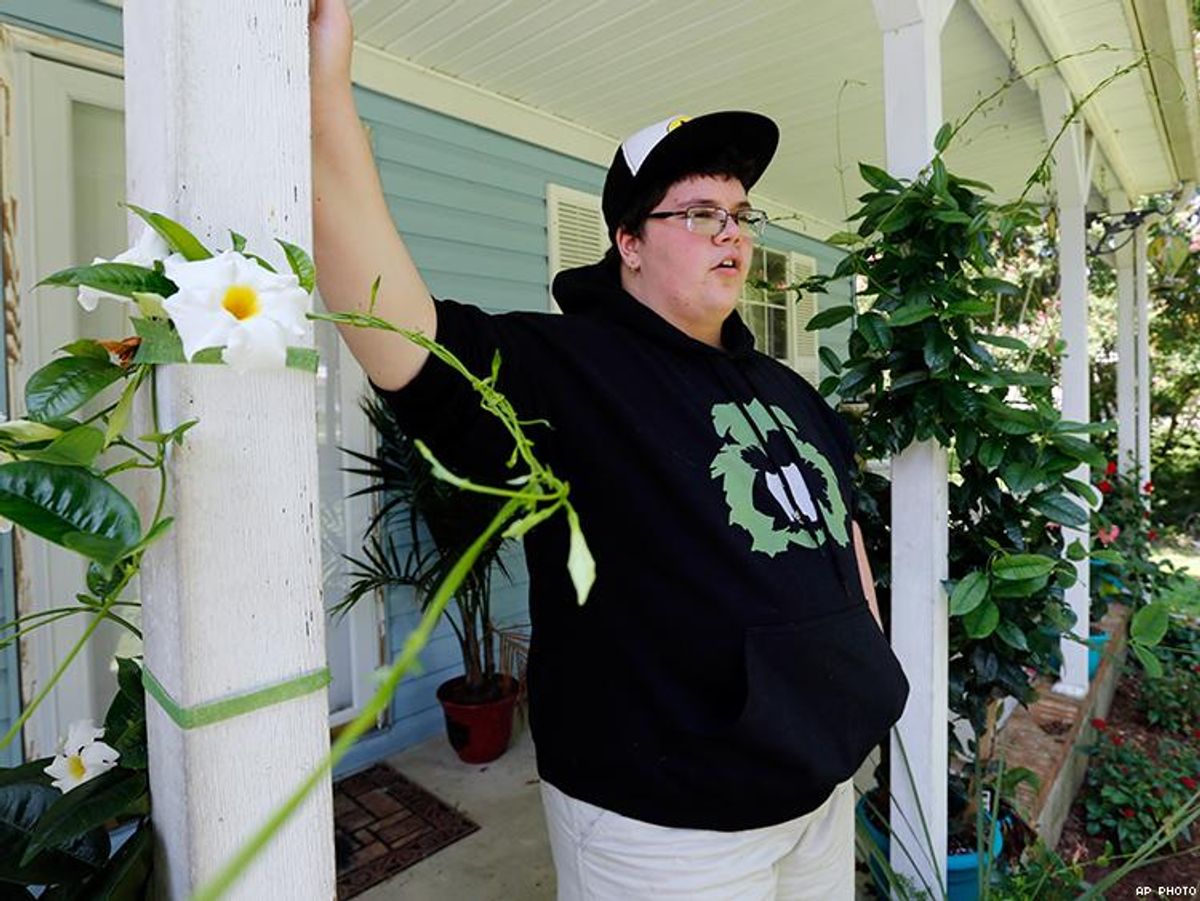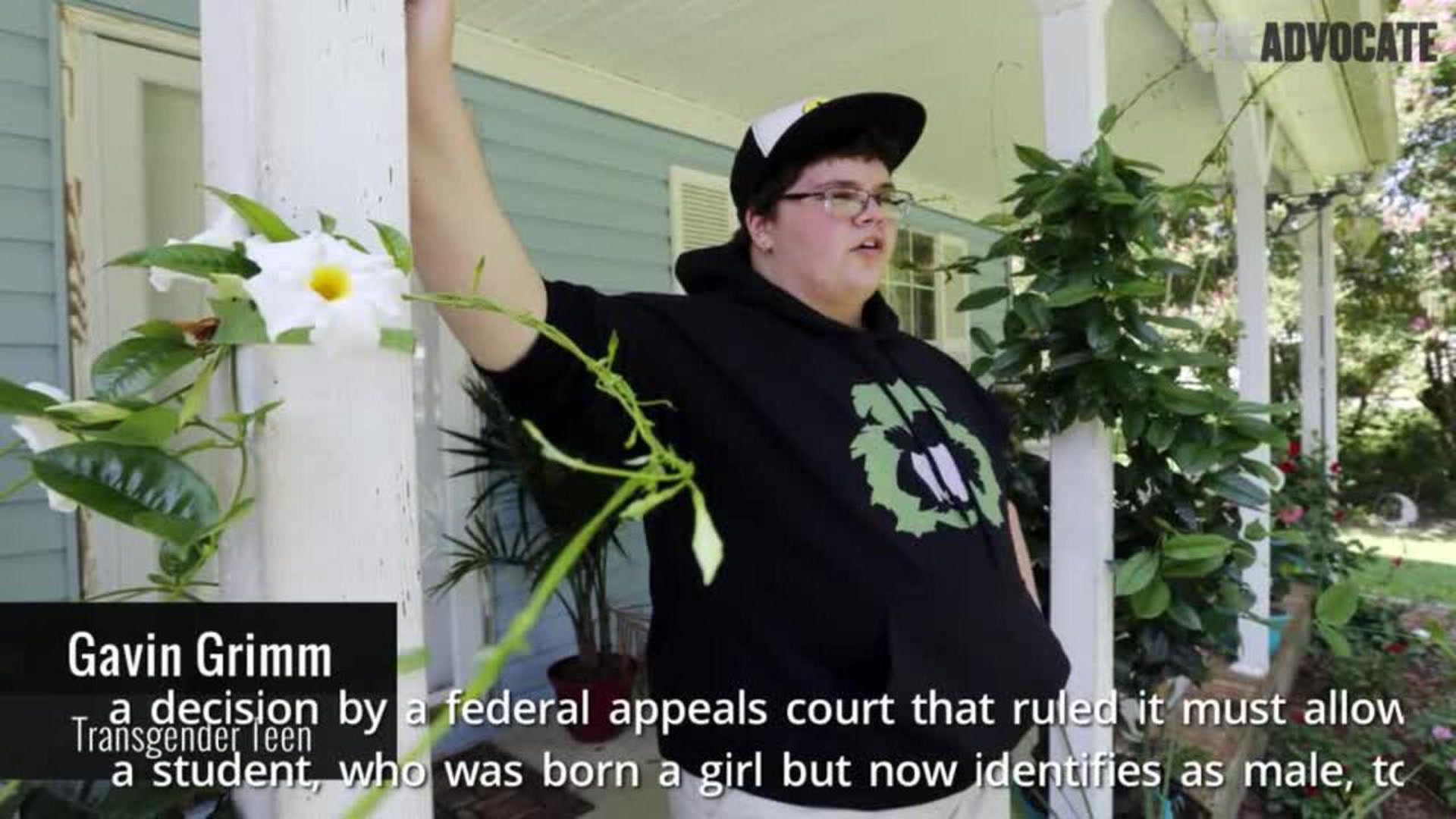Barely a month before students return to classes in Gloucester County, Va., the U.S. Supreme Court Wednesday put a temporary hold on a landmark ruling that determined transgender students must be allowed to use the school bathrooms and locker rooms that correspond with their gender identity.
By a vote of 5-3, the nation's high court granted the Gloucester County School Board's request for a temporary stay of a June injunction that had been granted by the U.S. Court of Appeals for the Fourth Circuit. That injunction would have allowed 16-year-old Gavin Grimm to use the boys' restroom at his high school, even as the school board appealed the case. The preliminary injunction in the case, known as Gloucester County School Board v. G.G., followed a major ruling from the Fourth Circuit that effectively reinstated the lawsuit after much of it was dismissed by a lower court.
The Supreme Court's granting of a stay requires the vote of five justices, and in Grimm's case, Justice Stephen Breyer broke with the court's liberal bloc to join the four conservative justices in favor of the stay. In the one-page ruling, Breyer writes that his was a "courtesy vote," explaining that the stay will "preserve the status quo." Justices Elena Kagan, Sonia Sotomayor, and Ruth Bader Ginsburg voted to deny the school district's request.
Courtesy votes are an unofficial court tradition that are more commonly applied in capital punishment cases. Since approving a writ of of certiorari -- an agreement to hear a case pending before the court -- requires only four votes, a fifth justice gives a courtesy vote so that the defendant is not executed before their case is heard and ruled on by the court. By way of explaining his "courtesy vote" on this case, Breyer referred to an earlier case in which a stay of execution for a condemned prisoner was not granted because Breyer could not secure a "courtesy vote."
The stay will remain in place at least until the court can rule on the school district's petition for certiorari, which is unlikely to happen until October at the earliest, when the court's new session begins, explains BuzzFeed News legal editor Chris Geidner. If the high court decides to hear the case, the stay granted Wednesday will remain in place until the court hands down its final ruling. If the court denies certiorari, the Fourth Circuit's ruling will become final, and Grimm will be granted access to the facilities that correspond with his authentic gender.
Wednesday's ruling in favor of preserving the status quo means that Grimm, a transgender boy attending high school in the district, will likely not be allowed to use the boys' restroom when he returns to school in early September. Instead, Grimm will be bound by the school district's current policy, which requires him to use a separate single-stall bathroom away from his peers. That segregation has caused the teenager to be singled out and harassed by his classmates, according to the American Civil Liberties Union, which is representing Grimm in the lawsuit. Continuing that differential treatment will do "irreparable harm" to Grimm, the ACLU's complaint contends.
Current research supports the ACLU's position. A study released earlier this year found links between denial of access to appropriate bathrooms and an increased risk of suicide among transgender students. Transgender students are already at higher risk of depression, anxiety, suicide attempts, and self-harm than their cisgender (nontrans) peers, according to a report issued by the researchers at Fenway Health last year. New research published last month by the National Center for Transgender Equality also shows that the ongoing debate about trans bathroom access is doing real harm to trans people, with nearly 60 percent of respondents avoiding public restrooms altogether out of fear of harassment or assault.
The issue of transgender students and their right to use bathrooms concordant with their gender identity has been hotly contested since the Department of Education issued guidelines earlier this year stating that Title IX of the Education Amendments of 1972 protects the rights of transgender students. The department's guidance, which is not legally binding, suggested schools that receive federal funding should implement policies that allow trans students to use facilities that match their gender identity. In response, 21 states have filed a pair of lawsuits against the Obama administration and the Department of Education, looking to stop the implementation of these trans-affirming policies. Meanwhile, 12 other states have filed an amicus curiae brief supporting the administration's intrepretation that Title IX's prohibition on discrimination based on sex also protects transgender students.



















































































Viral post saying Republicans 'have two daddies now' has MAGA hot and bothered